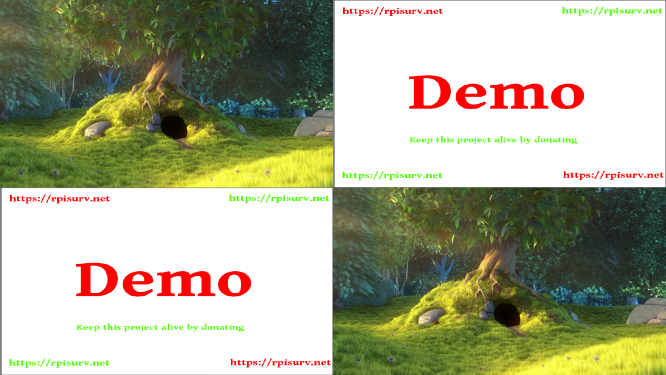Rpisurv: Convert Raspberry Pi Into a Powerful surveillance Camera System
Table of Content
Raspberry Pi is a small, affordable computer that was originally designed to help people learn how to code. Since its introduction in 2012, it has become a popular platform for hobbyists and developers to create a wide range of projects, from media centers to home automation systems. Its small size and low power consumption make it an ideal platform for creating dedicated devices, such as digital signage systems or video display devices, as well.
Rpisurv is a free and open-source application that allows you to convert your Raspberry Pi into a dedicated device for displaying video streams or images. This software is an excellent solution for anyone who wants to create a digital signage system or display a video stream on a monitor or TV using a Raspberry Pi.
Rpisurv is easy to use, and it is compatible with a wide range of video formats. The application can display videos in full-screen mode or in a windowed mode, and it supports multiple monitors. Additionally, you can configure the software to display images or slideshows.

The software is highly customizable, and it offers a range of features that make it an excellent choice for displaying video streams or images. For example, you can configure the software to automatically start playing videos or images when the Raspberry Pi boots up. You can also create playlists that automatically cycle through a set of videos or images.
Overall, Rpisurv is a powerful and flexible software application that can turn your Raspberry Pi into a powerful digital signage system or video display device. With its extensive features and customization options, it is a great choice for anyone looking to create a self-contained display system using a Raspberry Pi.
Features
Self-healing and health monitoring including watchdogs
- Every stream will be monitored by an external watchdog process, if the stream gets killed somehow, the watchdog will try to restart the stream/process. This gives you a very robust surveillance screen.
- Stream up/down detection and autorepositioning of connectable streams on the screen layout. For example: if you stop a camera (or just stop the server on the camera), Rpisurv will detect this and will recalculate/redraw the screen with the still available streams. The same is true if a previous unconnectable stream becomes connectable. All without any user interaction.
Automatically position streams (no manual coordinates calculation needed)
- Autocalculcate coordinates for every stream displayed.
- If you are not happy with the autocalculations you can customize yourself.
Rotation of screens (autorotate or with keyboard control)
- You can configure multiple screens and cycle between them in an automated way or via the keyboard.
- In the case of dual displays, you can configure multiple screens to be cycled between for each display.
Multiple types of streams
- You can also specify "image streams", to display images next to or instead of camera streams. The images will be auto-updated if they change remotely.
Dual HDMI support
- Rpisurv will auto-detect if a second display is connected at boot and will automatically start the configured screens for the second display.
URL sources
1- file://
This is a path on disk, by default a videofile is expected. This videofile will then be played in an endless loop. If used with imageurl: true then an image file is expected. If the image changes on disk then Rpisurv will also reload the stream with the new image. Note in dual displays mode imageurl type streams are only displayed on 1 display (/etc/rpisurv/display1.yml). TIP: If an external program rotates the images on disk then Rpisurv can thus be used as a frontend for a digital picture frame.
2- http:// and https://
This is a remote location with a video file or video stream If used with imageurl: true then an image file is expected. If the remote image changes then Rpisurv will also reload the stream with the new image. Note in dual displays mode imageurl type streams are only displayed on 1 display (/etc/rpisurv/display1.yml). TIP: This can be used as part of a digital signage setup: several Rpisurv clients can be steered centrally by changing the image(s) on the central location. Rpisurv will autodetect interruptions and tries to restore the stream.
3- rtsp:// and rtmp://
This is a remote location with a video stream, Rpisurv will do his best to display the stream, it will autodetect interruptions and tries to restore the stream.
License
- GPL-2.0 License
Resources
- Support














